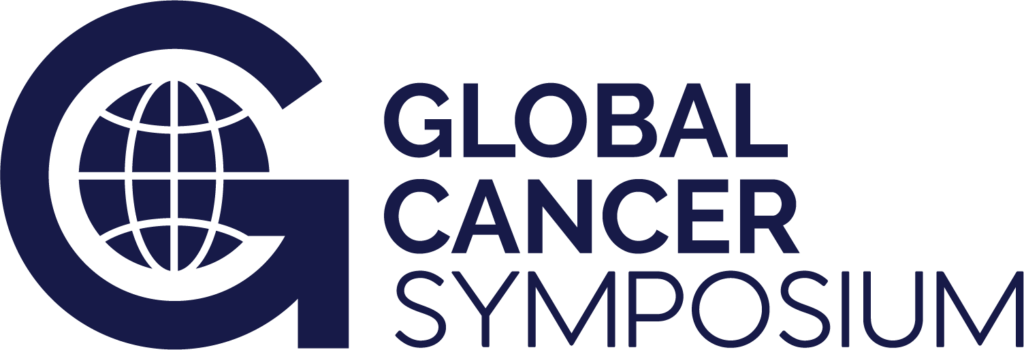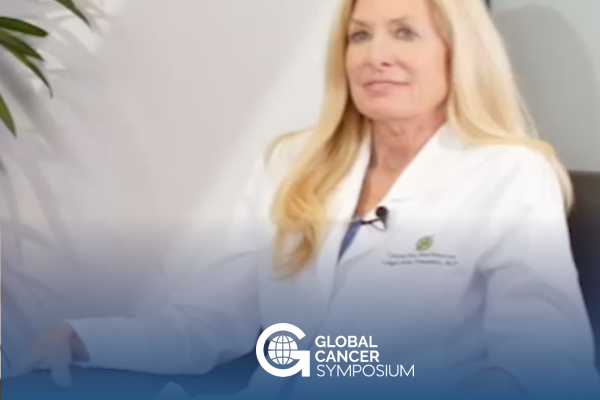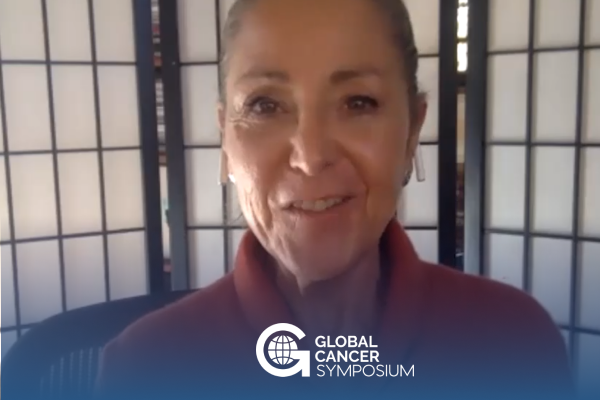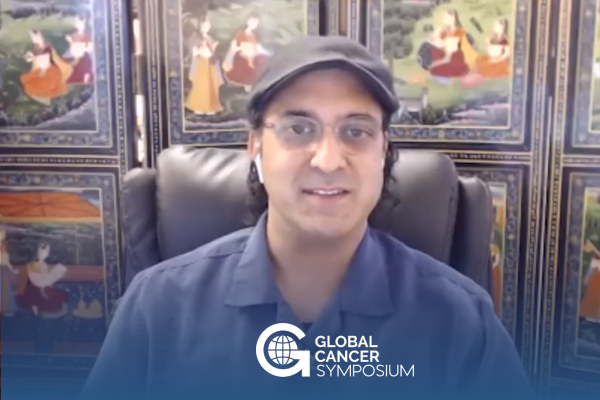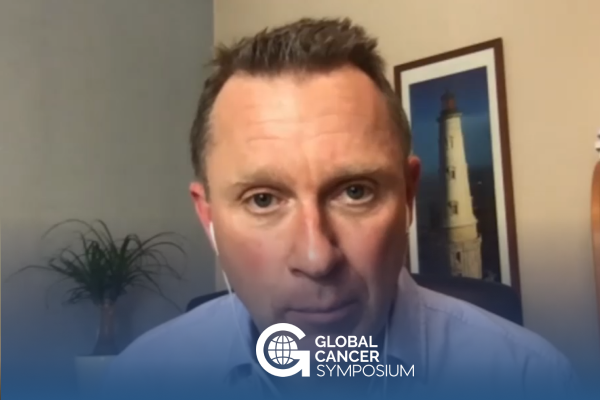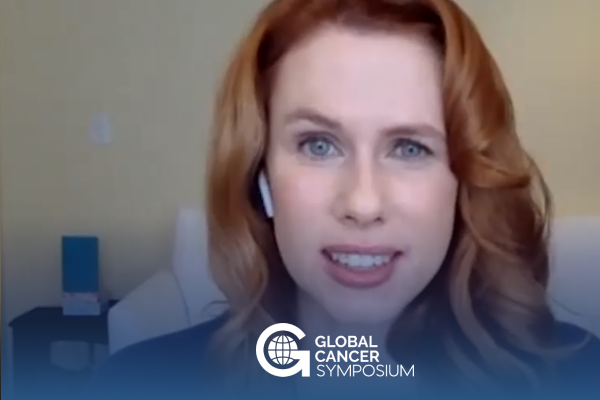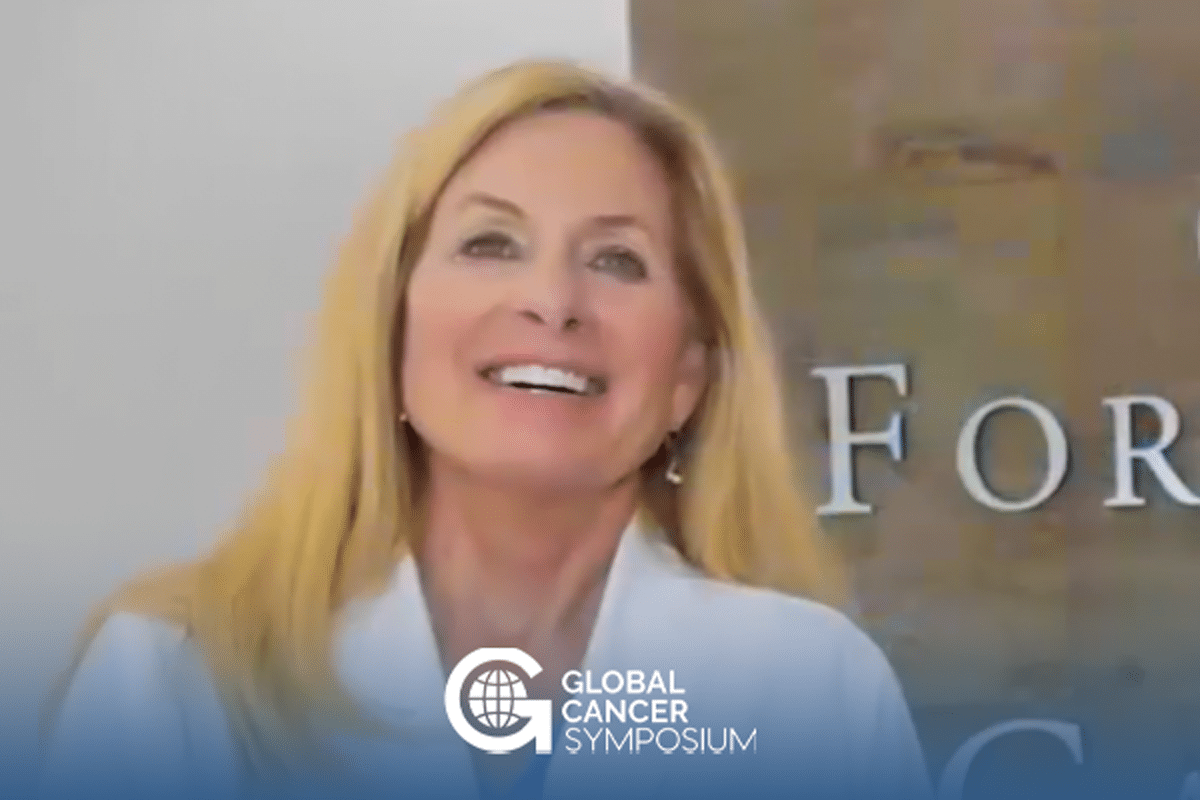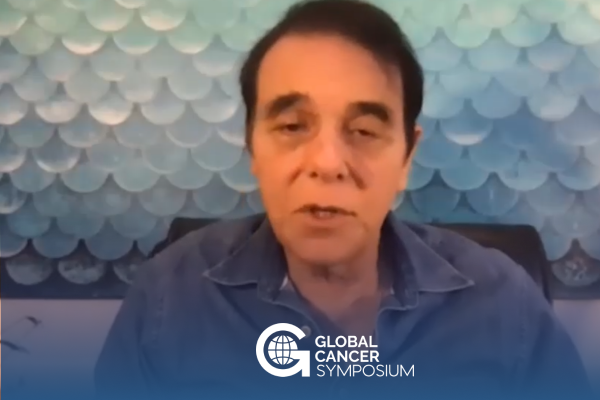Join the discussion below
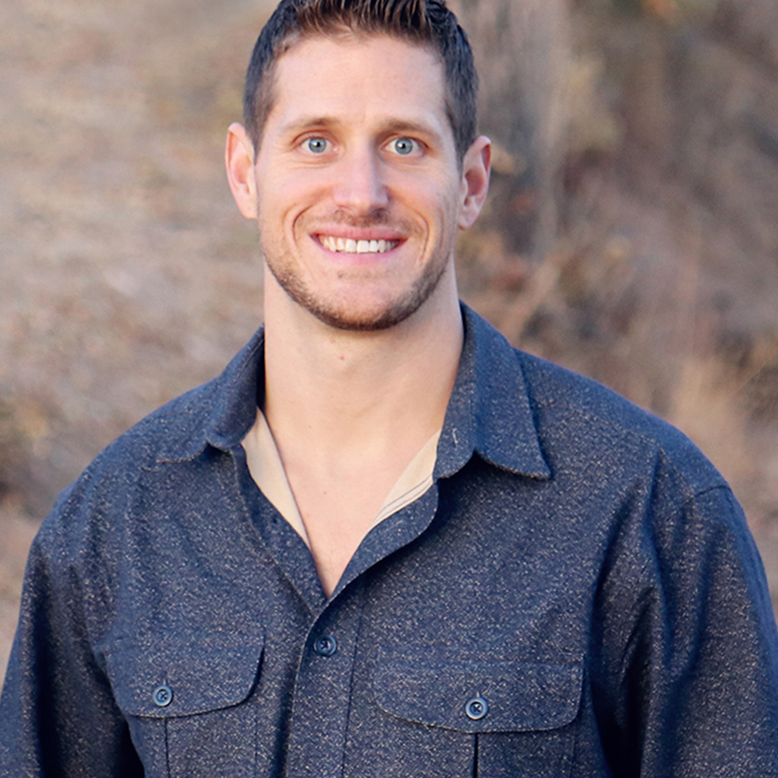
Nathan Crane is an award-winning author, inspirational speaker, plant-based athlete, event producer and 18x award-winning documentary filmmaker. Nathan is the Founder of The Panacea Community, Creator of the Global Cancer Symposium, and Director and Producer of the documentary film, Cancer; The Integrative Perspective. He is also the Director of Strategic... Read More
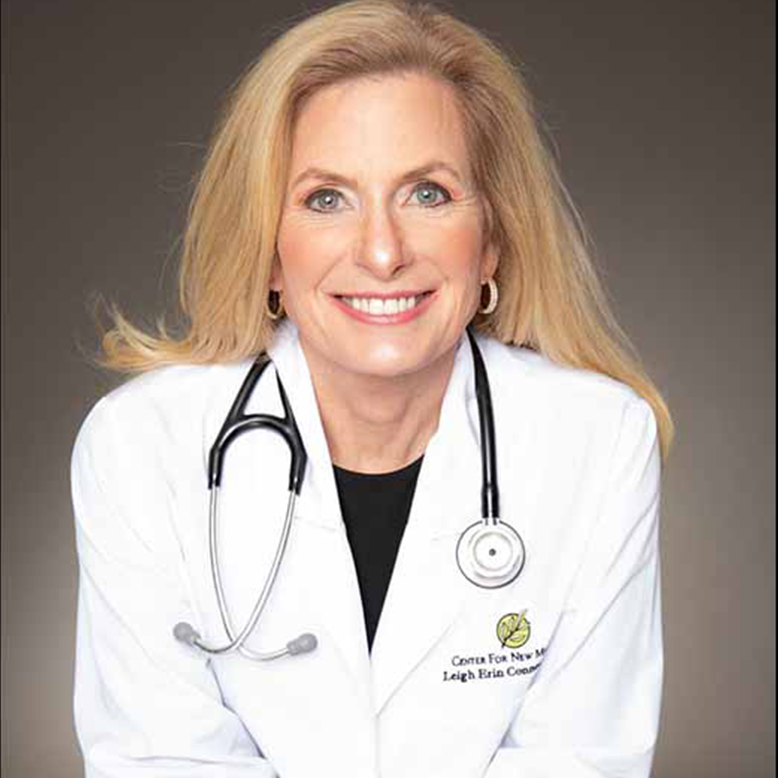
Leigh Erin Connealy, MD is a prominent leader in the Integrative & Functional Medicine medical field (taking the best of all sciences, including conventional, homeopathic, eastern medicine, and the new modern medicine). She is the Medical Director of two amazing clinics “The Cancer Center For Healing” & “Center For New... Read More
Holistic Approach: Dr. Connealy stresses the importance of addressing the mental and emotional aspects of healing alongside physical treatments for cancer patients.
Mind-Body Connection: She advocates a holistic approach to cancer care, focusing on resolving emotional conflicts, reducing stress, and nourishing the body to create a healthy terrain for healing.
Positive Mindset: Dr. Connealy highlights the role of mindset in transforming a cancer diagnosis into a transformative experience, urging patients to view challenges as opportunities for growth and positive change.
Related Topics
Autoimmune, Cancer, Cancer Class, Cancer Prevention, Chronic Conditions, Chronic Illness, Data Analysis, Detection, Diabetes, Diagnostics, Early Detection, Education, Human Health Journey, Human Optimization, Integrative Perspective, Maintenance, Prevention, Recurrence, Repair, Self-healing Program, Upkeep, Weight LossNathan Crane
Hello, everybody. Welcome back to the Global Cancer Symposium 2.0. I am your host, Nathan Crane. You know, I’m really honored to be filming right here at the Cancer Center for Healing in Irvine, California. I’ve met Dr. Connealy years ago at conferences that I produced in San Diego actually about integrative healing. And, you know, I’ve known of just the incredible work that you have done over the years, decades of research and experience with thousands, tens of thousands of patients, you know and I’ve always heard from you and others just how incredible your center really is. And I finally got the chance to come out here interview your team, meet your colleagues. We’ve done a dozen interviews as part of the symposium that, make sure you go and watch all of ’em because every single one of ’em covers just one piece of the whole puzzle
Leigh Erin Connealy, M.D.
That’s right.
Nathan Crane
that you focus on here at the center. And there’s so much you do here from an integrative perspective to help people heal and help their bodies to heal as much as possible from cancer, right.
Leigh Erin Connealy, M.D.
Well cancer and all chronic conditions, and human optimization.
Nathan Crane
Yeah. Yeah. So first, thank you so much for having me out here, and thank you so much for being our presenting partner with the Global Cancer Symposium. And thank you so much for just the great work you do and really facilitating a culture within your staff of people who care, people who are loving, who are compassionate, who are dedicated to… That’s the thing I’ve seen most common. I mean, honestly, in meeting your staff and talking with them is like just this openness
to learn which is huge. You don’t find it in a lot of doctors today. So they’re always wanting to learn, always wanting to get better, always wanting to find the best things that can help their patients. And that clearly trickles down from you and your leadership.
Leigh Erin Connealy, M.D.
Right, and always willing to serve.
Nathan Crane
Yeah.
Leigh Erin Connealy, M.D.
We all need to wake up and love and serve.
Nathan Crane
Yeah, and it’s beautiful. And it’s really portrayed here very clearly. So cancercenterforhealing.com if you wanna learn more about the center. But today, you know we’re gonna talk about prevention and early detection. I know you have such a profound mission of really helping people, one, detect cancer early in their lives or in their family’s lives, their loved ones. And two, helping people prevent cancer to the best of their ability and/or prevent recurrence.
Leigh Erin Connealy, M.D.
Correct.
Nathan Crane
Right. So we’re going to talk about some things that will support you if you have cancer. But we’re also gonna talk about prevention and early detection
Leigh Erin Connealy, M.D.
Right, well, we all must be aware that cancer’s the second leading cause of death in this country, over 1,600 people dying needlessly of cancer today. But it’s not just the dying. It’s the human suffering that these patients endure through their surgery, their chemo, or radiation, or all three together. And everyday we see it because a lot of our patients don’t come to us first. They go somewhere else and get treated. And then after all that has failed, then they arrive and come here and they need care and they wanna reverse their disease. But my big motto that I teach all the doctors and I teach everyone is prevention is priceless. So as a result of my own personal experience, a lot of you probably already know my story, but I’m gonna tell you a little snapshot. I was born in the fifties and my mother started bleeding. I was her third pregnancy.
She went to
her medical doctor and her doctor said, “We have a great drug that will prevent the miscarriage “and prevent you from bleeding.” Sure enough, my mother took that medication, and she obviously had me. So as a result though, when I was 16 years of age I came home from school and my parents sat down with me and told me that a letter arrived in the mail that the drug that my mother was administered caused cancer in both male and female offspring. Not only cancer, but it also caused hormone problems, fertility problems, anatomical problems. And I pretty much had all of them. I was telling—
Nathan Crane
As a teenager already.
Leigh Erin Connealy, M.D.
Already. Wow. And so I started going to a cancer institution, a large ivory tower in Houston, Texas, to get clinically examined and evaluated. And so I was a spectacle because I was a learning case, and this was a teaching hospital. So you could imagine at 16 years of age getting pap smears, biopsies, and all kinds of things.
Nathan Crane
Geez, wow.
Leigh Erin Connealy, M.D.
I’m not gonna tell you all the gory details, but I will tell you that I’ve been through many experiences from hormone problems to… I just told Nathan a week ago or so, I had 18 hours of back surgery from scoliosis that was caused by the medicine. And so my whole life is how not to get cancer. And I want you to know what I know. And so, as a result, you may think, “You know what? “I am perfectly fine. “I don’t have anything wrong with me. “I feel great. I run marathons. “I eat right.” And I tell people, “You can’t manage something you don’t measure.” You know, everybody looks at their balance in their bank account, right? Or their charges on their credit card to make sure they’re accurate. Why aren’t we looking at the same data in our body?
Nathan Crane
Right.
Leigh Erin Connealy, M.D.
And if you are not checking what’s going on, you can’t change what you don’t know. And so we do here at the clinic, it’s me and a dream team of people like Nathan was saying earlier. We are looking at the most deepest levels of a human being possible, and looking at all the parameters. I
wrote the book, “The Cancer Revolution,” if you want more details, it tells you. The blood test. I’ve had patients actually order blood tests just from my book to get the ball rolling for their own self-healing program. But cancer people don’t realize that from one cancer cell, cancer starts with one cell, it takes 10 years to develop a tumor.
Nathan Crane
Yeah.
Leigh Erin Connealy, M.D.
10 years. So that means you have nine years of health opportunity to detect or prevent cancer. So I am encourage every one of you to master your own health journey. Partner with someone who has the same understanding that I do to find out the details of your human health journey. It will be the best thing you ever do. I always tell people my most important value is health, because without health, you really aren’t anything. First of all, you feel horrible, so you wanna have a pity party every day. And I’ve been a patient. I’m not just a doctor. I’ve been a patient many times before. Then, you can’t be a good mother. You can’t be a good friend. You can’t be good employee. You can’t be really good for anything, much less your community. And so I tell people we’re all interdependent on one another. So the best thing that you can do to help yourself is to take charge of your health. Obviously online, there are so many different learning possibilities. Partner with someone who can be your encourager, your guide, your teacher, in some way to help you stay on track. Also, really to understand the data. We are here constantly teaching our patients. We have a cancer–
Nathan Crane
Which I love. I love it because it’s… I mean you’re obviously treating and you’re supporting. You’re helping people change their diet and nutrition. And you have all these incredible resources and tools and devices that are supporting the healing process. But a big part of what you do with all of your patients and their families is educate them, give them the information, the science, the how-to, the actual support to change their life so that they can actually live longer and healthier.
Leigh Erin Connealy, M.D.
Right.
Nathan Crane
Without that education, it’s, you know, you’re missing majority of the potential, right. And so you put such a big emphasis on education. And I love that.
Leigh Erin Connealy, M.D.
Right, and we have a cancer class every Wednesday for all the patients. It’s online so people from everywhere can be chiming in. But I tell people there’s no finish line to help, okay. You’re gonna be constantly working on yourself. I tell people now that I’m over 60, and I tell people the warranty’s fully over at 60 and it’s pure repair, upkeep, and maintenance. And trust me, it is. Everyone always told me, “Okay wait till you turn 60,” and I’ll go, “Oh no, I’m fine.” And then I’m like, “Oh, hmm, yeah.” It’s just repair, repair, upkeep, and maintenance.
Nathan Crane
Time to buckle down and put it into fifth gear, right?
Leigh Erin Connealy, M.D.
Exactly. And so please, please, I encourage everyone out there to learn about everything that we have to say and what other people are saying. They’re educating you on so many topics. It could be diabetes. It could be weight loss. It could be autoimmune. But that is what it starts with. I tell people, “You can’t change your condition “until you understand your condition.”
Nathan Crane
Why do so few people actually focus on prevention though, right? Because we know that like unfortunately, majority of people wait until they get sick to actually do something about it. Why do you think that is? Why are we just so programmed as a society to not actually think about our future in those terms? ‘Cause so many people that I’ve talked to that are seemingly healthy, right, that very clearly could be having cancer growing for years within them, or other underlying chronic conditions. And you talk to them and you say, “Yeah, you know. “Let’s get you on the track of health and prevention.” And, “Oh, I’m fine, I’m healthy.”
Leigh Erin Connealy, M.D.
Right, I tell people, “You have to verify “that you’re healthy, okay. “You can’t just say ‘I feel healthy.'” I talk to many cancer patients every day, okay, from all over the world. And I always ask them what their first symptom was. They go, “Dr. Connealy I felt great. “I felt wonderful. “One day I had right upper quadrant pain. “One day I had abdominal swelling. “One day I had a cough.” Well that one day took 10 years, you guys, to take place. And I tell people to treat cancer, yes, we have some wonderful therapies available. The conventional treatment is maybe surgery, maybe some chemotherapy, and maybe radiation. That is the conventional treatment for cancer. But you have to understand the why, where, when, and how. If you did not change the soil of the cell that grew cancer, that cancer is gonna come right back.
Nathan Crane
Yep.
Leigh Erin Connealy, M.D.
Also, if you needed surgery, the surgeon cannot see microscopic cancer cells. So you’re hoping that your immune system, which was not good to begin with or you wouldn’t have gotten cancer–
Nathan Crane
Right.
Leigh Erin Connealy, M.D.
But the doctors don’t focus on immune resiliency which we should all be doing because that’s involved in every disease process
Nathan Crane
Yep.
Leigh Erin Connealy, M.D.
is immune resiliency. So you have the surgery, which I’m very familiar because I’ve had several surgeries in my life. It’s an injurious immunosuppressive process. So I prepare all my patients mentally and physically, IV vitamin C, hyperbaric oxygen, all dietary changes, purification changes, before they even have surgery.
Nathan Crane
Yeah.
Leigh Erin Connealy, M.D.
Then after the surgery, we need to repair for another month after the surgery.
Nathan Crane
And then if they don’t change what caused the cancer in the first place, get to the root causes–
Leigh Erin Connealy, M.D.
Causes.
Nathan Crane
It’s very likely gonna come back again, right?
Leigh Erin Connealy, M.D.
Yes, because–
Nathan Crane
Because often there’s circulating tumor cells.
Leigh Erin Connealy, M.D.
Right.
Nathan Crane
Right. That aren’t even identifiable.
Leigh Erin Connealy, M.D.
The soil, okay. What is the soil of every cell?
Nathan Crane
Yeah.
Leigh Erin Connealy, M.D.
Okay. Is it toxic? Is it sugary? Is it acidity? Is it infectious? Is it low oxygen? Is it heavy metals? Is it parasites? All of these conditions are conducting the activity of how the cell is going to work.
Nathan Crane
And people can be living with every one of those things, and multiple of those for years.
Leigh Erin Connealy, M.D.
For years.
Nathan Crane
And not even know it.
Leigh Erin Connealy, M.D.
Right. Exactly, a lot. Like for example, parasites. Well, parasites are a very common problem. Even CNN six months ago had a news flash that a patient had a tumor. And when they opened him up, it was parasites. So parasites can live not only in the gut, but anywhere in the body. Most parasites are outside of the gut.
Nathan Crane
And I’ve heard your team say that when they do parasitic testing, and fungal testing, and candida testing, and all these things with the cancer patients, almost all the time, people who have cancer have one or more of these in their body.
Leigh Erin Connealy, M.D.
Well, that’s right, ’cause it’s the perfect storm. I tell people, I give the analogy that cancer is like a hundred leaks in the roof, and you’ve gone to turn ’em all off, and it’s a tornado, rainstorm, and hurricane. So people get that analogy, but that’s what cancer is. So don’t think that a little surgery, and a little chemo, and a little radiation is going to be the the end-all, and the treatment, and the cure-all. I always tell people, “What is the definition of cure for cancer or remission? “It’s circulating tumor cells of zero. “Has your doctor measured your circulating tumor cells.”
Nathan Crane
I mean, that’s what the cure should be, right? That’s not what our medical standard is. What is the medical standard of care?
Leigh Erin Connealy, M.D.
The medical standard in the books today as of 2012–
Nathan Crane
Yeah.
Leigh Erin Connealy, M.D.
Is circulating tumor cells.
Nathan Crane
If they say cure.
Leigh Erin Connealy, M.D.
If you say remission or cure, it’s circulating tumor cells of zero.
Nathan Crane
Okay.
Leigh Erin Connealy, M.D.
Okay. That’s in oncology books today.
Nathan Crane
Interesting.
Leigh Erin Connealy, M.D.
Yes.
Nathan Crane
Yeah, because there’s a whole like paradigm in the medical community, right, that if you say remission, or five-year survival rate, they’re very similar, right. If somebody’s cancer just stops growing and they live past five years, they call it remission. They’re a survivor.
Leigh Erin Connealy, M.D.
They’re a survivor.
Nathan Crane
Right.
Leigh Erin Connealy, M.D.
Right, which is 2%.
Nathan Crane
Right, and so, but if you’re actually gonna… Now what about the testing that’s done for circulating tumor cells in terms of a conventional test for that. Is it accurate? Is it effective?
Leigh Erin Connealy, M.D.
Okay, so circulating tumor cells are done all over the world. All right, they’ve actually been done in the United States. So the first time I used a lab in the United States, I sent 25 specimens to the lab. All these patients had cancer, and every single patient came back zero.
Nathan Crane
This is blood?
Leigh Erin Connealy, M.D.
Blood.
Nathan Crane
Okay.
Leigh Erin Connealy, M.D.
They call it a liquid biopsy.
Nathan Crane
Yeah.
Leigh Erin Connealy, M.D.
So I said, “Well, I can’t use that lab.” All right, now–
Nathan Crane
So they all came back zero–
Leigh Erin Connealy, M.D.
All came back zero.
Nathan Crane
They all were confirmed to have cancer.
Leigh Erin Connealy, M.D.
Yes.
Nathan Crane
Wow.
Leigh Erin Connealy, M.D.
I knew that that lab was not going to be able to give me verifiable results.
Nathan Crane
Is that a common lab?
Leigh Erin Connealy, M.D.
Yes. Very common lab.
Nathan Crane
I wonder why it’s zero. It’s just not very accurate?
Leigh Erin Connealy, M.D.
It’s not accurate because the testing, it’s like anything. Technology gets better and better all the time.
Nathan Crane
So they need more cells to actually be accurate. Cancer has to be further along maybe.
Leigh Erin Connealy, M.D.
Their methodology and technology just isn’t, you know as accurate. But now they’re talking about in this magazine this is a conventional cure which we’re gonna talk about. There’s several wonderful topics because this is a conventional journal that I just happened to get in the mail.
Nathan Crane
Yeah.
Leigh Erin Connealy, M.D.
I thought, “Okay, it says the first thing, ‘Food fight.'” And I’m like, “Wow, when’s Duke oncologist “talking about food and cancer. “‘Could fasting save your life?'” I’m like, “Wow, I’ve gotta read this.’ Well, one of the first articles was the editor wrote about, “Can fasting, “can you starve your cancer?” So I’m like, “Oh my goodness, this is wonderful.
Nathan Crane
Yeah.
Leigh Erin Connealy, M.D.
“This is fabulous.” We are going to see a transformation in the paradigm.
Nathan Crane
That’s so cool.
Leigh Erin Connealy, M.D.
But one of the other articles was on liquid biopsies. So we utilize a lab called RGCC there in Greece because the founder, Dr. Papasotiriou, who was trained in Germany and Europe, he started the lab about 16 years ago. And this lab is used all over the world. It has the highest international certification of any lab that you could possibly have. So about eight years ago, maybe nine, we started using RGCC. So every doctor needs to take a test to understand the testing and how to interpret it because it’s very complicated. So you just can’t order the blood. You need to be a physician to take the test. Yes, there are other, I think chiropractors can order it. And other health professionals may be able to order it. So I started utilizing the test about eight years ago. and they have probably about a 84 to 85% accuracy rate detecting circulating tumor cells. Why is this so important? Well, circulating tumor cells are responsible for 95% of metastasis. That’s the cancer traveling to another part or other parts of the body.
Nathan Crane
Right, if you can do a PET scan or you could do a ultrasound–
Leigh Erin Connealy, M.D.
CT Scan
Nathan Crane
or a CT scan and say, “Okay, cancer’s gone.” Right?
Leigh Erin Connealy, M.D.
Right.
Nathan Crane
But–
Leigh Erin Connealy, M.D.
But, PET scans miss everything less than five millimeters.
Nathan Crane
That’s a lot.
Leigh Erin Connealy, M.D.
So if you have a clean PET scan , doesn’t mean you don’t have cancer. It’s just that, that is the most technical process that we can use today to identify cancer. But I always tell patients it’s not what we see on a scan or on blood work. It’s what we don’t see.
Nathan Crane
Yeah.
Leigh Erin Connealy, M.D.
So that’s why you have to do bioenergetic testing and check the circulating tumor cells.
Nathan Crane
So the RGCC, so it’s pretty accurate, right? That’s like a B-plus if you’re in school.
Leigh Erin Connealy, M.D.
If I sent, Nathan, your cholesterol to 10 different labs, I’d get 10 different results and that’s just cholesterol.
Nathan Crane
Wow. And this lab has the highest international certification you said for circulating tumor cells.
Leigh Erin Connealy, M.D.
No, for any laboratory doing the testing they’re doing.
Nathan Crane
Okay.
Leigh Erin Connealy, M.D.
It is a very difficult feat to achieve their certification.
Nathan Crane
So the significance of this, from what I understand, is that you can identify cancer through circulating tumor cells through this test much earlier, right? Years and years.
Leigh Erin Connealy, M.D.
Years and earlier. So I’ll tell you two girls that I saw seven years ago. They’re from Texas. They came to see me for early detection. And why did they come to see me? Well, their mother died from breast cancer. All their aunts died from breast cancer. One of them had BRCA1 One of them didn’t have BRCA1. Well BRCA1, only 50% of patients may develop cancer. So it’s not like a guarantee that because you’re BRCA1 you’re going to develop cancer. So they came to see me for early detection. They were about, well, one was 38 and one was 40 years of age. And so at the time I did a blood test called ONCOblot. ONCOblot detects the ENOX2 protein. And it told me what organ. I also did circulating tumor cells. I also did blood work, and I also did bioenergetic testing. So I found one of the girls had breast and one of them had ovarian cancer. Now I will tell you, they get annual scans, MRIs. Okay. Very detailed evaluations. They have no evidence of a tumor. All they have been doing is they changed their entire lifestyle, their emotional situation, cleansing, everything that we do, that’s outlined in my book. And then they have just focused on eradicating circulating tumor cells. But their life is full. I just talked to one a week ago. She’s a yoga instructor in Texas. And the other one is a mother of three children. And they have had no interruption in their life because why? They decided to search out, and make sure, and verify that they were healthy, and they were not going to get cancer.
Nathan Crane
And then they got the information.
Leigh Erin Connealy, M.D.
And now they just–
Nathan Crane
And they–
Leigh Erin Connealy, M.D.
I see them once a year.
Nathan Crane
And they changed their lives, diet, nutrition, exercise.
Leigh Erin Connealy, M.D.
Exercise.
Nathan Crane
Mental and emotional well-being, cleansing.
Leigh Erin Connealy, M.D.
Everything, the whole thing. And they’ve learned how to do it all on their own at home. And then I–
Nathan Crane
It’s a lot cheaper.
Leigh Erin Connealy, M.D.
Yes.
Nathan Crane
A lot less painful.
Leigh Erin Connealy, M.D.
Yes. A lot less suffering.
Nathan Crane
A lot less suffering.
Leigh Erin Connealy, M.D.
For everyone.
Leigh Erin Connealy, M.D.
Yeah. Okay, think about it, how many people–
Nathan Crane
That’s an ideal world, right? That is an ideal scenario.
Leigh Erin Connealy, M.D.
Yeah, but we can all be. We can all achieve that ideal scenario.
Nathan Crane
I agree. I agree. I think we have to start educating… First, we have to educate ourselves but then pass this on to our nieces, and nephews, to our children, and grandchildren to everybody, right, so that we focus on these things early on.
Leigh Erin Connealy, M.D.
That is right.
Nathan Crane
Which is critical to our human development. If we keep killing ourselves with these chronic diseases that are most of the time preventable.
Leigh Erin Connealy, M.D.
Right, and that’s what people are saying is we’re killing ourselves with our industrialized technologically evolved way of living.
Nathan Crane
Right.
Leigh Erin Connealy, M.D.
Okay. And you talked about prevention. They go, “Well, why isn’t…” Well, first of all, first of all, we have to value human health.
Nathan Crane
Yeah.
Leigh Erin Connealy, M.D.
Second of all, the doctors need to be… Doctor means to teach.
Nathan Crane
Right.
Leigh Erin Connealy, M.D.
Doctors need to be educating their patients how to have the best optimal health. Last week, I had a patient who has her own concierge doctor. She has diabetes, hypertension, menopause, everything. She’s on four different medications. And I said, “Well, do you know you can reverse diabetes?” “Really? I can reverse diabetes?” I said, “Yes. Diabetes is completely reversible.” Reversible.
Nathan Crane
Type two diabetes.
Leigh Erin Connealy, M.D.
Type two diabetes.
Nathan Crane
90% plus of people, right?
Leigh Erin Connealy, M.D.
Yes.
Nathan Crane
Just diet change?
Leigh Erin Connealy, M.D.
Just dietary changes.
Nathan Crane
Right.
Leigh Erin Connealy, M.D.
And she goes “Really?” And I said, “Yes.” But she sees a physician that is not teaching her to make lifestyle changes.
Nathan Crane
Right.
Leigh Erin Connealy, M.D.
And it is published everywhere that most diseases, 80 to 90% are related to lifestyle. What is lifestyle? How do you think? What’s your emotional IQ? What’s your spiritual IQ? How do you sleep? How much water? How much do you move? What do you eat? And how do you live really every day? And those are things that we’re all in control of. You know, a lot of things we’re not in control of.
Nathan Crane
Sure.
Leigh Erin Connealy, M.D.
But the way we live, we’re in control of.
Nathan Crane
For the most part, right.
Leigh Erin Connealy, M.D.
And I’m not saying you have to be this perfect person, ’cause that’s not real to be a perfect person. That’s not a really good goal or mission ’cause you’re gonna be disappointed every day. So, but if you embrace these lifestyle natural laws and rules of the body. And I tell people, “I didn’t make them. “I’m just the messenger.” But we all have to follow the natural laws and rule of the human mind, body and spirit.
Nathan Crane
Yeah. Beautiful. In touring your facility here, and meeting with your colleagues, and doing all these incredible interviews, and learning about new technologies, for me, new for me, that I’ve… And even new in the health field that I’ve never seen before what is it that… What’s your drive? What’s your passion? What is it that drives you to constantly bring forth, and invest in, and utilize so many different technologies and leading edge tools and resources for helping people heal? And how does that weave in to the cultural and philosophical fabric of the center here?
Leigh Erin Connealy, M.D.
Right, well we are searching the world for the most innovative strategies to actually heal people. The Hippocratic oath says, “First, do no harm.” The third or fourth leading cause of death in the United States is properly prescribed medications. Then we can get into errors. And then we can get into other things. But medications are toxic substances. Now don’t get me wrong.
Nathan Crane
Right.
Leigh Erin Connealy, M.D.
Sometimes we need medications. For sure in emergencies. But for the chronic management of diseases, it’s lifestyle, all right? So I started this 34 years ago in a little office. And here we are today.
Nathan Crane
I remember you telling me the story last night.
Leigh Erin Connealy, M.D.
Right.
Nathan Crane
You know, over dinner. Just the incredible struggles and challenge and everything of you starting all of this from scratch pretty much by yourself.
Leigh Erin Connealy, M.D.
Right.
Nathan Crane
And then now, this massive team and helping tens of thousands of patients, and all the incredible work you do now. It’s truly incredible to see where you’ve come from and where you are now.
Leigh Erin Connealy, M.D.
Right, it’s a force within me, beyond me I always tell people because I don’t want to see people suffer.
Nathan Crane
Yeah.
Leigh Erin Connealy, M.D.
And I want people to truly know what we all here know. And we do have an amazing team. I will tell you that our doctors and our practitioners work tirelessly, because every day we are researching the latest, greatest thing, okay. I don’t care what it is, but we’re first looking. Requirements are for something for a treatment to be offered here, it doesn’t hurt you, it doesn’t harm you, and it doesn’t have side effects. So of course there are going to be some things. The only thing that we do at the center that may have potential side effects is low-dose chemo that Dr. Kim talked about. And so sometimes we have to do low-dose chemotherapy to shrink tumor burden, because it’s tumors somewhere in the body. And so they have to be shrunk with some chemotherapy. But that’s the only possible thing that has a side effect. Everything here is adding an energy to the system, okay. Whatever treatment we’re doing here is adding to the success and healing of your body.
Nathan Crane
From the bioenergetic machines, to the nano bath, to hyperbarics.
Leigh Erin Connealy, M.D.
To the red light bed, to ondamed, to lymphatic drainage, everything.
Nathan Crane
Homeopathy and naturopathic medicine.
Leigh Erin Connealy, M.D.
Exactly, and you’re probably wondering, “Well, why do we need all this?” Well, you need it, first of all, there’s no one-size-fits-all, number one. Number two, certain people do better with a certain treatment than other treatment. Third of all, we have to write a roadmap for each person to fit the tapestry of their human structure and their complexity at their issue. So there is not one-size-fits-all.
Nathan Crane
‘Cause it’s usually never just cancer, right? There’s always–
Leigh Erin Connealy, M.D.
No disease is just cancer.
Nathan Crane
Something else there.
Leigh Erin Connealy, M.D.
It’s a myriad of issues going on. And our goal is to put our body in homeostasis and harmony.
Nathan Crane
And that’s, you know, for prevention, that’s key, but for healing, it’s also… I mean, do you do, do you recommend to people, obviously they don’t need more of the intense treatments or the requirement of ongoing certain treatments and modalities if they’re focused on prevention versus somebody who’s focused on healing, right. But in terms of like underlying principles for people preventing cancer in the first place, or preventing reoccurrence versus people who have cancer, would you say that those principles are pretty much the same?
Leigh Erin Connealy, M.D.
Yes. I would say. It’s just that when you get a stage four cancer patient, there is an intense amount of effort on the patient and the practitioner’s part to create healing immediately. And it’s usually always overwhelming when a patient is diagnosed, number one. But number two, with the things that we want the patients to do, they’re going, taking a left turn in their life, and we’re trying to create a right turn in their life. And that’s changing every facet of how someone has lived.
Nathan Crane
Yeah, you’re changing habits. You’re changing beliefs.
Leigh Erin Connealy, M.D.
Habits.
Nathan Crane
You’re changing everything.
Leigh Erin Connealy, M.D.
Exactly.
Nathan Crane
We know it can be hard, but it’s necessary.
Leigh Erin Connealy, M.D.
It’s necessary, and every single patient will tell you that cancer’s a gift, that there has been a silver lining in their diagnosis, many a patient, okay. But I will tell you something to kind of help people understand. You know Nixon declared war in 1971, all right.
Nathan Crane
Declare war on cancer, right?
Leigh Erin Connealy, M.D.
And then every president, therefore, after that has too, okay. But we have not made any advancements in the survivability or diagnosis of cancer. Now we can send people to the moon, and we can put satellites, and we can use our little phone to talk to people all over the world, and look up everything, et cetera, et cetera, et cetera. And we can’t create healing in our body? There’s something wrong.
Nathan Crane
Right.
Leigh Erin Connealy, M.D.
When we have the evidence
Nathan Crane
Right.
Leigh Erin Connealy, M.D.
today. Right now we have it available at our fingertips first and foremost.
Nathan Crane
Right.
Leigh Erin Connealy, M.D.
So there’s been a couple of books written in the last year. And one was written by an oncologist called, “The First Cell.” And the oncologist talks about how cancer starts with one abnormal cell. In the right conditions, that cancer, that normal cell turns into a cancer cell. Then she proceeds to talk in the book about cases of patients, and all the cases where patients who were diagnosed, and treated, and suffered. And she said in the last 20 years, there has not been any advancement in cancer care and healing. And the maximum amount of life we’ve increased is three months.
Nathan Crane
Geez.
Leigh Erin Connealy, M.D.
Okay. So this is an oncologist who, very esteemed oncologist. She’s trying to tell us something.
Nathan Crane
Right.
Leigh Erin Connealy, M.D.
Okay. Another doctor, who’s a nephrologist, who’s written several books on obesity, weight loss, diabetes, and cancer, said the same thing.
Nathan Crane
And they’re speaking specifically in our conventional approach.
Leigh Erin Connealy, M.D.
Correct.
Nathan Crane
Drugs, chemotherapy, radiation.
Leigh Erin Connealy, M.D.
Surgery, chemo, and radiation, or some combination.
Nathan Crane
Yup.
Leigh Erin Connealy, M.D.
And they’re saying that–
Nathan Crane
So it’s time to realize there’s–
Leigh Erin Connealy, M.D.
We’ve reached a point of no return.
Nathan Crane
Right. And then at some point we need to change our approach.
Leigh Erin Connealy, M.D.
Right, and don’t get me wrong. When I see a patient, sometimes I recommend a surgery.
Nathan Crane
Sure.
Leigh Erin Connealy, M.D.
Many times I have to, because we wanna get rid of the tumor, but then I need to change the soil.
Nathan Crane
There’s some cases where it’s early enough or it’s in a safe enough place that a surgery is–
Leigh Erin Connealy, M.D.
Is warranted.
Nathan Crane
You’re right.
Leigh Erin Connealy, M.D.
Exactly.
Nathan Crane
Right.
Leigh Erin Connealy, M.D.
But also, I tell patients, “I divide your situation into four phases.” Phase one is fix the patient immediately, right. Cure them, heal them, so that they can fight the cancer, okay. So like you have to look at their inflammation, their blood sugar, their vitamin levels, their nutrient levels, their bug level, parasite level, acidity level, oxygen level, everything, right? So there’s no sense in me fighting the cancer unless I fix you first, your foundational facets.
Nathan Crane
Right.
Leigh Erin Connealy, M.D.
Okay. Then there’s the cancer. Get rid of the cancer. Maybe needs surgery. Maybe need chemo. Then we have to go up through the circulating tumor cells. Then we have to go out after the bioenergetics of the body, the interference fields that are below the surface of the blood test and the scans.
Nathan Crane
Yeah.
Leigh Erin Connealy, M.D.
So it’s not something simple. It’s not like you just go to the doctor. The surgeon says, “You need this.” And oncologist said, “Okay, you need chemo.” And then the radiation oncologist says, “You need the radiation.” Please, please. If you’re going to do that route, please combine integrative therapies that you’re creating healing, your immune system, your cleansing, your protection from the radiation, chemo resistance, radiation resistance. I mean, all of these other things. Because people don’t realize. You know when you get chemotherapy, that 50% of the cancer cells from the first chemo they’re resistant to. So if you have a hundred cancer cells, or a million cancer cells, half, they’re gonna kill, and half they’re gonna be chemo-resistant.
Nathan Crane
And we know chemotherapy actually, in the oncologist journals states, that it actually doesn’t kill the cancer stem cells either.
Leigh Erin Connealy, M.D.
That’s right.
Nathan Crane
Right.
Leigh Erin Connealy, M.D.
So cancer stem cells, or the circulating tumor cells, are not killed by surgery, chemo, or radiation.
Nathan Crane
So it’s clear that what you’re doing here as a pioneer, you know, really a leading pioneer in integrative medicine and really focusing on everything possible to help the patient heal is what’s needed. And as you’ve said in a previous interview I’ve done with you years ago, when you about the doctor of the future. And you know, I love that one aspect of your entire mission is to help bring forth more of these doctors of the future, doctors who are educated in all of the medicinal qualities, all of the disciplines, natural, holistic, you know, conventional, to create a truly integrative approach for health and healing. So, you know, I just wanna say thank you for being such an amazing person, a leader, a pioneer, somebody who clearly cares about and shares that compassion, and love, and dedication, to truly help people not only heal from cancer, but prevent cancer, ’cause clearly we need a lot more of that. And as we kind of finish our time here, is there any last, anything else you wanna share with our audience in terms of just what can they think about in moving forward in their lives to not only prevent cancer, but think about living in a healthier and more fulfilled way in their lives?
Leigh Erin Connealy, M.D.
Right, and that is, I believe your number one value, I know we have a lot of values, but I think your number one value has to be health because then you can have the other values which might be freedom, which might be love, which might be whatever, okay. But health can’t be bought, all right? Right now on Amazon, there are no bodies for sale. Okay. You can’t do an exchange, right. We have to take charge and responsibility for our health. There’s so much overwhelming information out there. I think we do need partners to help us get there. And that’s why I always like doing the symposiums that we’re doing, whether it’s on cancer and other topics, because I think the world needs to know what you know, what I know, and so many other practitioners have to offer. Second of all, the most important thing is never give up on yourself.
Nathan Crane
Yeah.
Leigh Erin Connealy, M.D.
Okay. Don’t give up on someone else ever, okay. And don’t give up on yourself. There are so many invincible solutions that can come into your life if you ask them.
Nathan Crane
Beautiful
Leigh Erin Connealy, M.D.
Yes. So, never give up. Number three, is I always say that things don’t happen to you, they happen for you. Because I had a friend who was sick, and he’s really never sick, super athlete, super can do anything, always touts how great he is, and he got very, very sick. And he was texting me every day how sick and so forth, and I’m telling him what to do. And then he texted me finally and he says, “Finally, I feel better.” And I said, “Yes, and more importantly “you have learned what it’s like to be sick. “And now you’re gonna have more compassion “for someone who is complaining and not feeling well.” “So you’ve become a more enlightened being.” And I will tell you that in my health journey that I’ve had, lots of stuff, you wouldn’t even believe it. And of course, I’ve had a pity party. Don’t get me wrong. I’m human. I’m not a robot. I have had big pity parties, okay. That doesn’t get you anywhere. Makes you feel horrible. Lowers your vibrational frequency.
Nathan Crane
Yeah.
Leigh Erin Connealy, M.D.
But it’s all taught me, one, how to take care of myself. But number two, how I can be a better person and help someone else ’cause I’ve learned something new to help you.
Nathan Crane
Yeah, and you’ve clearly been doing an amazing job. So thank you so much, Dr. Connealy. I appreciate your time. Appreciate your welcoming me here into the family, and getting to tour your facility, and meet with your entire team, and do all these great interviews, so thank you so much.
Leigh Erin Connealy, M.D.
You’re welcome. It’s my pleasure. We wanna share with the world all the things that are possible.
Nathan Crane
And so just so you know, as part of being a part of the Global Cancer Symposium 2.0, you also get the treat and the privilege of getting to hear from Dr. Connealy and her team being welcomed into their family. So make sure you keep an eye out for those emails from her and her team over the coming days and weeks following the symposium. They’ll be sharing some really wonderful resources with you, not only for prevention, early detection, but also treatment and all kinds of things that you can do to stay healthy and live longer. So thank you for tuning in here with us at the Global Cancer Symposium. Make sure to share this with friends, family, anybody who needs to hear this life-changing information. And again, I’m Nathan Crane. I wish you all ultimate health and happiness. Take care.
Downloads
